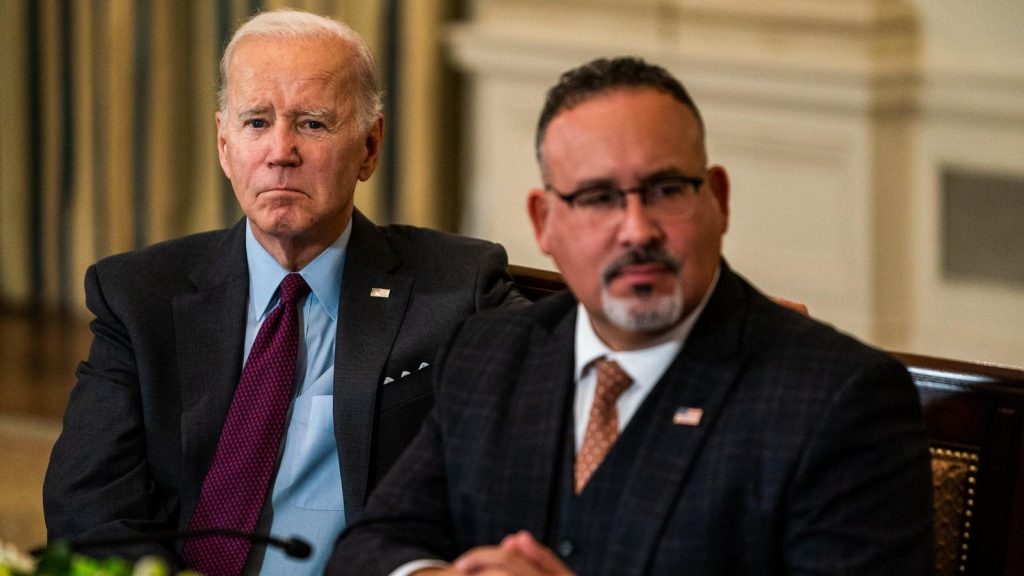The Education Department is doing some damage control following widespread reports of student loan payment processing errors.
As loan servicing problems mount, some individuals are being forced into an administrative forbearance, which historically has halted a borrower’s progress toward student loan forgiveness under critical programs. But according to an announcement this week by department officials, for some borrowers these months of non-payment may still count.
Here’s what you need to know.
Widespread Servicing Problems Could Derail Student Loan Forgiveness
Borrowers, advocacy groups, and the federal government are all reporting widespread and worsening problems with student loan servicing as payments restart. October was the first formal month of repayment following the conclusion of the student loan pause, which had been in effect since March 2020.
The Consumer Financial Protection Bureau, a federal watchdog agency, had previously reported increasing complaints related to long call hold times and misinformation being provided by loan servicers. More recently, hundreds of thousands of borrowers had their student loan payments miscalculated by their servicers.
Then this week, the Education Department revealed that millions of borrowers received incorrect or untimely billing statements, resulting in at least 800,000 borrowers falling into delinquency status.
Administrative Forbearance Headaches Can Halt Student Loan Forgiveness Progress
As a result of these issues, many borrowers are being forced into what’s called an “administrative forbearance” — a status whereby no payments are due and the student loan remains in good standing. But historically, these types of forbearances have not counted toward student loan forgiveness. This can be a problem for borrowers who are on track for Public Service Loan Forgiveness or Income-Driven Repayment; pauses in progress can stretch out the time before a borrower can qualify for loan forgiveness.
New rules that went into effect on July 1 can allow certain, limited types of administrative forbearances to count toward PSLF going forward. But it is not at all clear whether the mass forbearances currently being put into place will qualify. Similar rules will allow some administrative forbearances to also count toward student loan forgiveness under IDR plans, as well, but those new rules don’t go into effect until next summer.
Under President Biden’s on-ramp initiative designed to ease the transition back into repayment for 12 months, borrowers won’t be reported as delinquent to credit bureaus if they miss a student loan payment. But missed payments won’t count toward student loan forgiveness under PSLF or IDR, according to published guidance.
Education Department Says Some Forbearances Will Now Count Toward Student Loan Forgiveness
In an announcement on Monday, the Education Department indicated that borrowers impacted by the recent billing snafus — specifically, borrowers with loans serviced by MOHELA who received untimely billing statements in October — will be placed into an automatic administrative forbearance. That forbearance will count toward student loan forgiveness for the PSLF and IDR programs, says the department.
The Education Department “has directed MOHELA to place all affected borrowers in forbearance until the issue is resolved,” according to a statement released on Monday. “Any months these borrowers are in forbearance will count as credit towards loan forgiveness through Public Service Loan Forgiveness and Income Driven Repayment plans.”
So far, however, this exception to the normal rules appears to be limited to the MOHELA-related incident. It is unclear if the department will expand this flexibility to other servicer-related issues that are resulting in borrowers being placed in administrative forbearances on a massive scale.
“The failures revealed represent only some of the illegal servicing practices borrowers are facing in the return to repayment,” said Student Borrower Protection Center Executive Director Mike Pierce in a statement on Monday. “Borrowers urgently need law enforcement officials at every level of government to act—addressing this new evidence of illegal practices by MOHELA and its peers, levying penalties where federal and state laws were broken, and ensuring that borrowers are made whole.”
Further Student Loan Forgiveness Reading
Check Your Email: 50,000 Borrowers Get Student Loan Forgiveness Notices, And Yes, They’re Real
Education Department Unveils Major Details On New Student Loan Forgiveness Plan
5 Student Loan Forgiveness Updates As On-Ramp Begins And Problems Worsen
Didn’t Get A Student Loan Forgiveness Email? 7 Possible Reasons Why
Read the full article here
